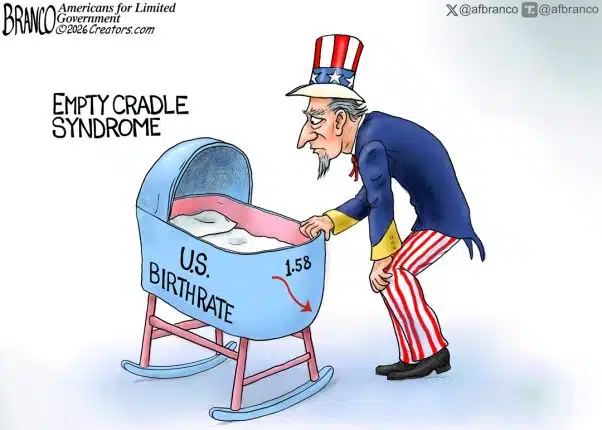 By Bill Wilson — With the radical anti-bailout party Syriza leading polls in Greece and set to pull off a major upset in June 17 parliamentary elections, all speculation about the future of Europe is centered on whether or not Greece will leave the Eurozone as the sovereign debt crisis there comes to a climax.
By Bill Wilson — With the radical anti-bailout party Syriza leading polls in Greece and set to pull off a major upset in June 17 parliamentary elections, all speculation about the future of Europe is centered on whether or not Greece will leave the Eurozone as the sovereign debt crisis there comes to a climax.
At what valuation of the drachma would it pay back its debt? How much in losses would this mean for financial institutions at the new exchange rate? Would a Greek exit cause other nations to leave the common currency as well? These are some of the questions being asked.
In fact, that might be the best case scenario. The worst case scenario would be if Greece was to default on its remaining €240 billion of obligations all together. These debts are now concentrated in European Financial Stability Facility (EFSF), the European Central Bank (ECB) and the International Monetary Fund (IMF), which the U.S. funds in part.
How might that happen? Syriza head Alexis Tsipras for now has said that Greece should remain in the Euro, despite the catastrophe that has befallen his nation. “A vote for the left does not mean that we would leave the euro. Quite the opposite, we would keep the euro,” Tsipras said recently.
That is actually not at all surprising. Tsirpras’ position mirrors the broad majority of Greeks, 78 percent of whom in a recent poll indicated they want to remain in the currency.
At the same, his party’s rise to power has been predicated on not implementing the terms of the bailout agreement. Running a €19.5 billion deficit in excess of 9 percent of GDP, Greece never has followed the Eurozone’s budget rules, and it never will. The political class there has always used the cheap financing the currency provided as a subsidy for its own excesses.
So, not wishing to exit the Euro, and refusing to execute the bailout program, Tsipras apparently intends to muscle Germany and the ECB to monetize and refinance Greece’s debts in perpetuity, no matter how large they get.
This would in turn transfer wealth from Germany to southern Europe, and shift inflation from south to north. It would be the end of fiscal sovereignty for all of Europe’s powers, but particularly for the greater ones, which would be forced to accommodate the waste of their neighbors. Italy and Spain, which combined have more than €2 trillion of debt, would likely come looking for the same deal.
For that reason alone, Germany won’t let that happen.
Which leaves the only remaining option. At that point, the EFSF and the IMF would have no choice other than to withhold bailout payments to Greece, effectively forcing them into default. The ECB could go further and cut off Greece’s banking system from any more Euro funding and perhaps even pull back some €100 billion in emergency liquidity assistance.
This would be Brussels’ attempt to push Greece into backing down and once again accepting the terms of the bailout agreement. Tsipras would then have to choose whether or not to cave in and once again cede Greece’s fiscal sovereignty to foreign bankers.
Would Tsipras capitulate? Syriza’s political ascension is based exclusively on rejecting the terms of the bailout agreement. The young leader might find his government imploding over night if he then suddenly surrenders to the dictates of the EU despots.
Being cut off from any financing, would then leave Greece without a means of paying government employees, satisfying contracts, or making welfare, pension, and health care payments. So, the government would only have one option: Restore the drachma, recapitalize the banks, and transfer the economy overnight into a new system.
Tsipras could then tell his people that he tried to remain a part of the Euro, but that Brussels forced the country out with its draconian terms. And that now Greece must forge its own path.
At that point, Greece could repay its debts in devalued drachmas, but why stop there? Why not just go tell Europe to pound sand. Pay nothing. What if that happened?
A hard default on €240 billion of debt would then send ripple effects throughout the Eurozone, particularly to whoever is holding it. The EFSF, IMF, and ECB would be on the hook for most of the losses.
But not to worry. The ECB would then likely cover the losses with freshly minted Euros, perhaps even invoking emergency credit lines from the U.S. Federal Reserve to help cover any shortfalls.
Even if Greece promised to pay its debts in drachmas, the devaluation would still be about 75 percent or so, which is still technically a credit event default. Any outstanding credit default swaps would next be invoked, leading to billions more in payouts.
Finally, market speculation would immediately move to the entire Euro cracking up, with pressure next being placed on Portugal or Ireland, Spain, and then Italy. After all, if Greece can get away only paying €.25 on the euro for its debt why should anyone else pay?
Moreover, the real problem is that Europe’s financial system lacks the capacity to lend to governments in excess of the 3 percent of Gross Domestic Product (GDP) the Maastricht criteria ever allowed in the first place.
Spain’s 2011 deficit of €91.3 billion was 8.5 percent of its GDP. Ireland’s €20.5 billion was a whopping 13 percent. Even France stands out with a deficit of €103 billion, coming in at 5.2 percent. Italy’s €62.3 billion deficit was 3.8 percent of GDP.
So, nobody’s following the rules. Does Germany want to subsidize all of these profligate countries with higher inflation on her own people just to keep a currency afloat that it doesn’t even need?
If the only way the Euro could have ever worked properly was with fiscal union — a United States of Europe, if you will — then it’s over. In the end, one by one, each nation will opt to reassert its sovereignty rather than submit to Brussels, and this globalist scheme will fail remarkably.
Default or no, a Greek exit from the Euro will undoubtedly cause massive disruption, bank runs, markets crashing, you name it. And there likely will be no escape from the consequences, as the world bank cartel and then taxpayers are left holding the bag. But at least nations will be able to start again on their own terms, in their own currencies, and with the liberty of their peoples still intact.
Bill Wilson is the President of Americans for Limited Government. You can follow Bill on Twitter at @BillWilsonALG.






